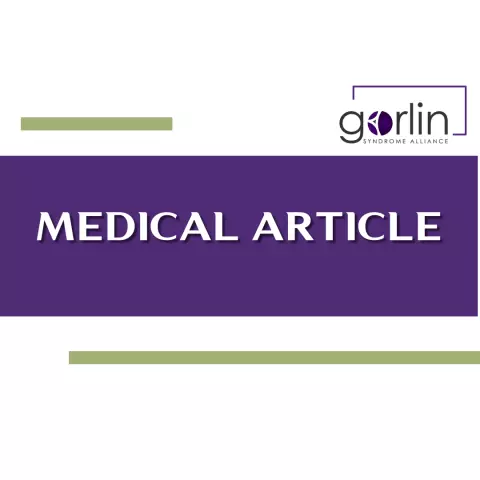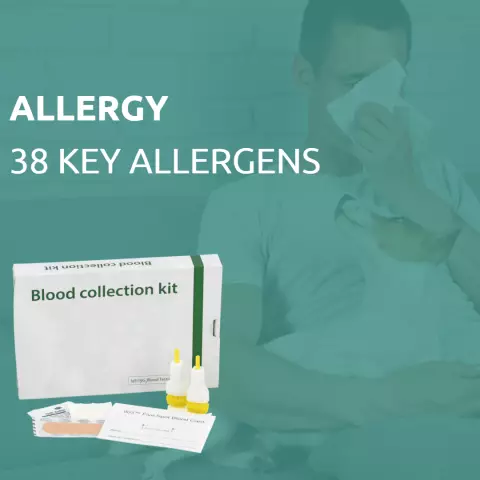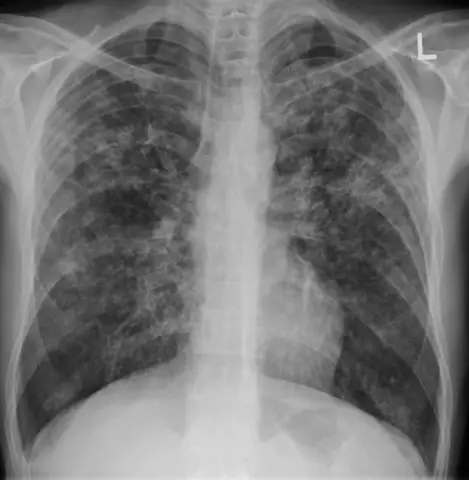- Author Rachel Wainwright [email protected].
- Public 2023-12-15 07:39.
- Last modified 2025-11-02 20:14.
Helminthiasis
Brief description of the disease

Helminthiasis is called infection with helminths - worms that parasitize in humans and animals.
The most common human helminthiasis: enterobiasis, which affects the intestines, skin, nervous system; trichinosis causing fever, muscle pain, allergic reactions; trichocephalosis, characterized by disorders in the activity of the gastrointestinal tract, nervous system, changes in blood composition, ascariasis, accompanied by disorders of the gastrointestinal tract, allergies.
Helminths can be fixed in the lungs, bile ducts, intestines, gall bladder, cause mechanical damage to internal organs, and poison the body with decay and metabolic products.
Helminthiases occur in acute and chronic stages. In the acute phase of the disease, mainly toxic damage to the body and the resulting allergic reactions are observed, and in chronic helminthiasis, the internal organs in which the parasites are localized are affected.
Human helminthiases are also dangerous due to the fact that they suppress immunity, negatively affect the ability to work, aggravate the course of existing diseases, and reduce the effectiveness of vaccination.
Causes of the disease
A person becomes infected with helminths mainly through food and water. Unwashed food, poor personal hygiene, dirty water are the main causes of infection.
Some types of parasites, such as hookworms and schistosomes, enter the body through the skin. In rare cases, infection with helminthiasis occurs when parasite eggs are swallowed with air and dust.
Symptoms of helminths
An infected person has the following symptoms due to helminths: a rash, fever, swelling on the face, inflammation of the eye membrane, upper respiratory tract diseases, and enlarged lymph nodes.
These symptoms are caused by helminths when the disease is in an acute stage - for a week or several months. If helminthiasis is not treated, the infection will enter the chronic phase. Allergic reactions may persist, and other symptoms due to helminths develop depending on their number, size, localization. Pains in the abdomen, joints, tissues, indigestion, migraine, anemia, vitamin deficiency, nervous disorders may appear.
Diagnosis of helminthiasis
Diagnosis of helminthiasis consists in the analysis of feces, in which whole worms and their parts, larvae and eggs are found. It is advisable to repeat the analysis for helminthiasis several times, because one study is not always indicative.
Blood tests are also used to diagnose helminthiasis. If infection with helminthiasis has occurred recently, eosinophils will be increased in the blood.
A characteristic indicator in the diagnosis of helminthiasis by blood analysis is the presence of immunoglobulin G antibodies to a certain type of helminths.
Treatment of helminthiasis
Treatment of helminthiasis is carried out with drugs that kill adults of helminths that affect their larvae and eggs: Medamin, Pirantel, Levamisole, Vormil, Tiabendazole, Praziquantel and others. The appointment is carried out based on the type of helminthiasis and the degree of infection.
A good result is provided by a complex treatment of helminthiasis, in which, in addition to anthelmintic drugs, they include choleretic, hepatoprotective, sedatives.
Due to the fact that many drugs for the treatment of helminthiasis are toxic, at the end of therapy, in addition to a control analysis for the presence of helminths, it is necessary to examine the intestinal microflora, gastrointestinal tract organs, liver and, if necessary, undergo rehabilitation.
Prevention of the disease
For the prevention of helminthiasis, it is not recommended to drink water from unfamiliar sources, eat unwashed fruits and vegetables.
It is necessary to maintain cleanliness in the house, observe the rules of personal hygiene, and conduct regular deworming of pets.
YouTube video related to the article:
The information is generalized and provided for informational purposes only. At the first sign of illness, see your doctor. Self-medication is hazardous to health!






